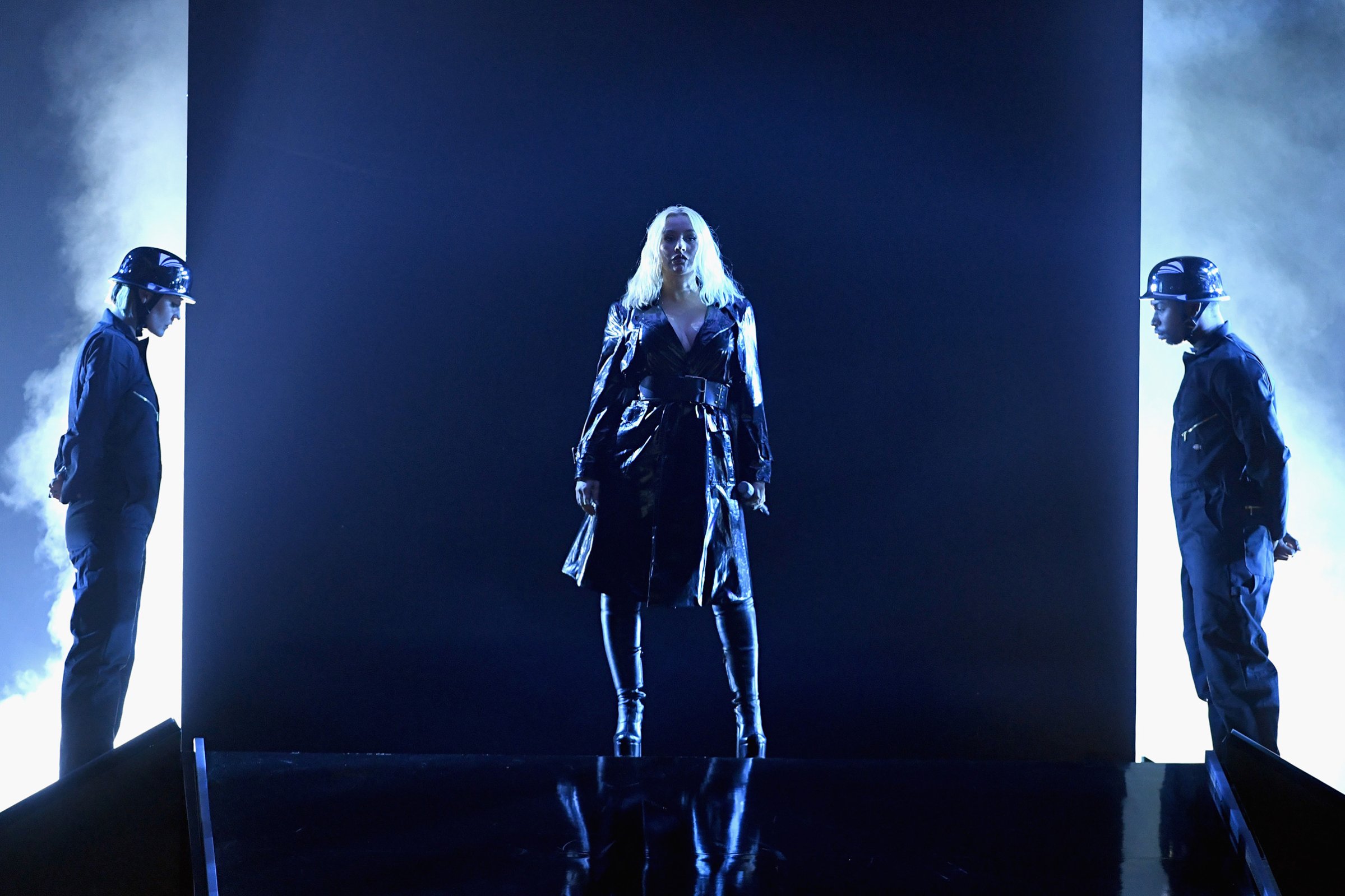
Christina Aguilera has always been driven by reinvention. She shakes off a part of herself with each new album cycle, tapping into a character or concept that can house whatever is energizing her creatively. First she left her teen-pop roots behind and demanded respect on 2002’s Stripped, becoming a defiant adult star; four years later, she shedded that album’s raunchy persona and evoked Old Hollywood glamour on the overstuffed Back to Basics. She has spent most of the last decade-plus trying to generate and maintain some momentum, but she’s struggled to find musical relevance beyond a few booming features on hits including Maroon 5’s “Moves Like Jagger” and Pitbull’s “Feel This Moment.” On Liberation, her eighth studio album, she hits the reset button after almost 20 years in the public eye. It’s a reintroduction to the Aguilera behind all her personae: a mother of two with a cannon for a voice, unburdened by commercial expectations and half a lifetime away from the talent who broke out with “Genie in a Bottle.”
In many respects, Liberation feels like Aguilera’s attempt to make a version of Rihanna’s critically acclaimed Anti–an eclectic collection of tracks that come together to reveal something new about a star we’ve known forever. It’s rooted in R&B and hip-hop, but Aguilera doodles through a wide range of genres, including swampy Southern rock, dancehall and dewy ballads. While she realizes her vision with help from some fresh songwriters and producers, the tracks that best encapsulate Liberation’s frenetic sound were written and produced with Kanye West. “Maria” is a letter from Aguilera to her younger self, one built around a chirpy sample of a young Michael Jackson that’s swaddled in trap drums and stirring strings, while on lead single “Accelerate,” she indulges in come-ons and boasts over strobe-lit synths. Neither song offers much in terms of structure, but they’re relaxed and dynamic.
Not all of Liberation’s experiments offer the same pleasures. “Sick of Sittin'” begins with a promising growl, but it’s formless and muddy, and “Deserve”–Aguilera’s collaboration with hitmakers Julia Michaels and MNEK–underwhelms. (Hearing her navigate Michaels’ conversational verse is like watching an elephant rumble through an obstacle course.) The album’s second half devolves into a collection of bland, midtempo vocal exercises. But there are a few moments in which Aguilera makes the most of her veteran savvy, and she’s complemented by arrangements that reward her for doing something other than belting. She’s flirty on the glowing “Like I Do,” wriggling around a delirious flute loop: “I’ve been doing this way before you,” she winks. Late-album highlight “Pipe” is a featherlight duet, and Aguilera works out the logistics of a hookup with surprising delicacy.
She can still howl, of course, and on the powerful “Fall in Line” she rails against systemic misogyny in a pyrotechnic duet with Demi Lovato. It’s a reminder that Aguilera has endured new rounds of body shaming and malicious commentary with each new album cycle, and that she took a stand against this kind of treatment before doing so had permeated the culture, on hits like “Fighter” and “Beautiful,” which has made her an inspirational figure for a generation of young singers like Lovato. “Fall in Line” is the kind of song that fully realizes the promise of Liberation, as it shows Aguilera free to say what she wants–and share what she’s learned–after almost two decades of stardom.
More Must-Reads from TIME
- Cybersecurity Experts Are Sounding the Alarm on DOGE
- Meet the 2025 Women of the Year
- The Harsh Truth About Disability Inclusion
- Why Do More Young Adults Have Cancer?
- Colman Domingo Leads With Radical Love
- How to Get Better at Doing Things Alone
- Michelle Zauner Stares Down the Darkness
Contact us at letters@time.com